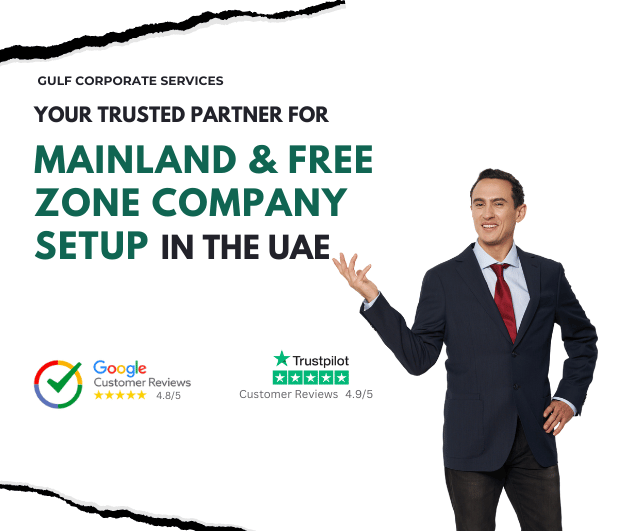Free Zone Company Formation In Oman
Setting up a business in one of Oman’s free zones gives entrepreneurs a simple and cost-effective way to launch with full foreign ownership, tax benefits, and access to international markets. Whether you’re starting a small company or expanding globally, Oman’s free zones offer a business-friendly setup with modern infrastructure and minimal restrictions.


What Is A Free Zone Company?
A free zone company is a type of business that is registered within a designated free trade area in Oman. These zones are created by the government to attract foreign investment by offering major benefits like 100% foreign ownership, tax exemptions, and full repatriation of profits.
Unlike mainland companies, a free zone company doesn’t need a local sponsor or shareholder. It allows international investors to run operations independently while enjoying streamlined setup procedures, low costs, and easy access to global markets. These zones also provide modern infrastructure, fast licensing, and industry-specific support for businesses involved in trading, manufacturing, logistics, and services.
In short, a free zone company in Oman is the easiest way for foreign entrepreneurs to launch and grow their business in the Middle East without heavy restrictions.
Types Of Business Entities In Oman
There are many reasons to register your business in a free zone. These factors include the location and tax structure. Companies in Oman are allowed to have 100% foreign ownership. This allows foreign companies to trade in Oman while retaining control of their operations.
Oman’s Freezone Sohar, located 220 kilometers northwest of the capital, Muscat, is well situated next to the port of Sohar. This free zone is located along the Arabian Gulf and offers easy access to the Indian subcontinent and the East African coast. Another example of a free zone is Salalah, which offers office space to rent and business incubators at newly built headquarters. The city boasts a deep-sea port and an international airport.
Oman has a decent oil reserve. However, a large part of its economy is generated through trade, agriculture, and tourism. The country has been steadily diversifying its economy since the late 20th century. In addition to oil, Oman has also developed industry, real estate, and infrastructure sectors. The company’s capital requirements are relatively low, so a foreign company with a minimum capital requirement of OR 150,000 will likely be a good choice.
Benefits of Free Zone Company Formation in Oman
Oman offers a range of benefits that make it attractive for new businesses looking for a regional hub.
100% Foreign Ownership
Investors can fully own their business without the need for a local sponsor, giving complete control over operations and profits.
Tax Advantages
Free zone companies in Oman benefit from:
- 0% corporate tax for a fixed period
- No personal income tax
- Duty-free imports and exports
- Full repatriation of profits and capital
Strategic Location for Trade
Oman’s proximity to major shipping routes and global markets allows businesses to operate efficiently across the GCC, Indian subcontinent, and East Africa.
Simplified Setup Process
The registration process is fast, with government support, low setup costs, and simplified paperwork.
Types of Free Zones in Oman
Oman has several major free zones, each tailored to different industries and business needs.
Sohar Free Zone
Located next to the Port of Sohar, this zone is ideal for manufacturing, logistics, and industrial companies. It offers direct sea, road, and air links.
Salalah Free Zone
This is a strong hub for logistics, warehousing, and light manufacturing. It’s near a major port and airport and offers a wide range of facilities.
Duqm Special Economic Zone
Duqm is perfect for heavy industries, construction, and marine-based businesses. It features a deep-sea port, dry dock, and integrated development zones.
Al Mazunah Free Zone
Positioned near the Yemen border, this free zone supports trading companies and small businesses targeting Gulf and African markets.
Step-by-Step Guide to Free Zone Company Formation in Oman
Setting up a company in an Omani free zone is straightforward if you follow these key steps.
Step 1: Choose the Right Free Zone
Identify which zone matches your business activity and target market. Each free zone has its own rules and advantages.
Step 2: Select a Business Activity
Decide your type of business – trading, services, manufacturing, or logistics. This determines your license category.
Step 3: Submit the Required Documents
Typical documents include:
- Passport copies of owners
- Business plan
- Company name reservation
- Proof of address
- Application forms from the chosen free zone authority
Step 4: Pay Fees and Lease a Facility
Choose from office space, warehouses, or land. Lease costs and registration fees vary by location and business size.
Step 5: Receive Your Business License
Once approved, you’ll receive your license, registration certificate, and residency visa support (if applicable).
Documents Required to Register a Free Zone Company
Each zone may vary slightly, but in general, you’ll need:
Basic Documentation
- Passport and ID copies of shareholders and managers
- Visa copy (if resident)
- Company name options
- Signed application form
Business Support Documentation
- Business plan or feasibility report
- Proof of capital (in some cases)
- Lease agreement for office or warehouse
Cost of Setting Up a Free Zone Company in Oman
The total cost depends on the zone, type of business, and facility requirements. On average:
Estimated Costs
- Registration fees: OMR 1,000 – 2,500
- License fees: OMR 500 – 1,500 per year
- Office or warehouse lease: OMR 1,000 – 5,000+
- Visa costs: Based on employee count
Gulf Corporate Services can provide a detailed quote tailored to your business model.
Why Set Up a Company in Oman Instead of UAE?
While the UAE is popular, Oman offers distinct benefits:
- Lower setup and operating costs
- No high-pressure compliance obligations
- Easy access to new and less saturated markets
- Strong government backing for foreign investment
Tax Exemptions In Oman
Free Zone company formation in Oman comes with strong benefits that make it appealing to foreign investors. One of the biggest advantages is the 0% corporate tax, which keeps the cost of starting a business low compared to many other countries.
Free zones in Oman also offer full tax exemptions on imports and exports, duty-free access to goods, and no tax on profit repatriation. The business setup process is quick, and foreign companies are treated like local businesses. This means there are no Omanization requirements, and international owners can run their businesses freely.
Oman’s tax system is transparent and easy to navigate, making it more predictable for investors. The government encourages foreign direct investment (FDI) through supportive policies, low setup costs, and competitive lease rates for qualifying businesses. Even utility charges are structured to reflect real usage, helping companies control overhead costs.
The legal system in Oman is stable, though legal proceedings can take time. If needed, businesses can appeal cases all the way up to the Supreme Court through the country’s three-level court system.
With recent reforms under the new Foreign Capital Investment Law (FCIL), Oman has removed the RO 150,000 minimum capital requirement and lifted the 70% foreign ownership cap. While the Ministry of Commerce and Industry hasn’t issued official ministerial decisions, a list of restricted business activities is available.
Overall, Oman’s free zones make it easier and more affordable for international investors to establish and grow a fully foreign-owned business in the Gulf.
How GCS Group Helps You Set Up in Oman
We handle the entire process for you, from business planning to paperwork submission. Our local experts ensure compliance with Omani regulations and help you choose the best free zone for your goals.
Our Services Include:
- Business consultation
- Document preparation and submission
- Company registration
- Office space and visa assistance
- Ongoing PRO and admin support
Start Your Oman Free Zone Business With Confidence
With 14 years of experience, Gulf Corporate Services is trusted by regional investors. We help you make smart decisions, save time, and avoid delays.
Ready to get started? Contact Gulf Corporate Services today for your free consultation and receive a tailored setup plan.

